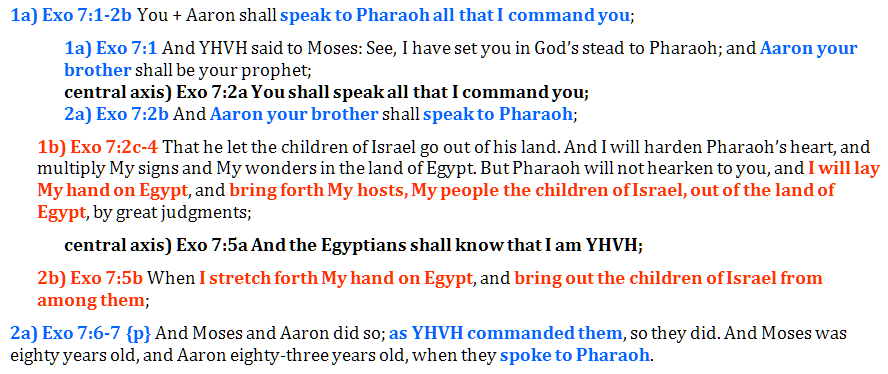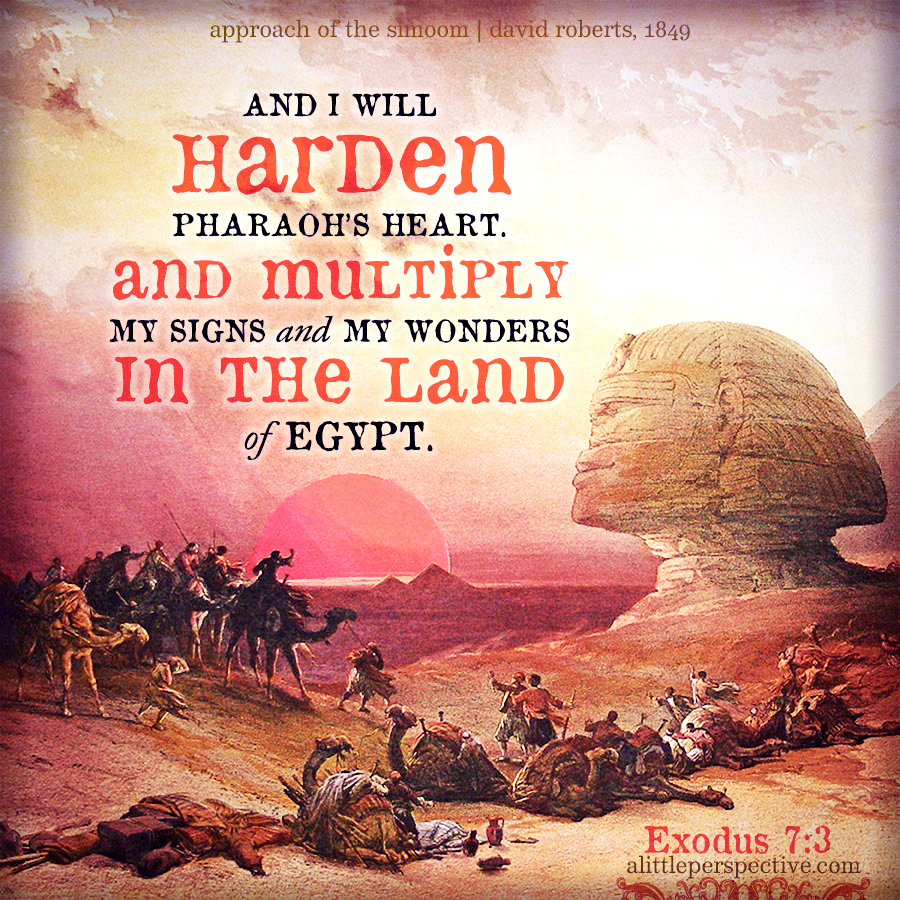Read Exodus 7:1-7 at Bible Gateway.
Paragraph division
Exo 7:1-7 {p} Moses to tell the word of YHVH to Pharaoh/ Pharaoh will not heed
Exo 7:1-7 chiastic structure

I find interesting that the purpose of the judgments is so that the Egyptians, who believed the lie that something or someone other than YHVH Elohiym was God, would be released from the bondage of that lie and learn that YHVH, He is God. We are in a similar place in our own culture, and we find the same theme repeated in Revelation, that the purpose of judgment is to cause whoever will to abandon lies and embrace truth.
Original Hebrew
Harden is Strong’s H7185 קשה qashah, a primitive root meaning, “to be hard, to be stiff-necked.” The pictographs are quph + shin + hey.
quph ק = sun on the horizon, thus condense, circle, time
shin ש = two front teeth, thus sharp, press, eat, two, again
hey ה = man with upraised arms, thus look, reveal, wonder, worship, breath
The related words brought to light by the Ancient Hebrew Lexicon help us discover the story. One is “stalk,” as a stalk of grain; another is “stubble,” that which is left in the ground after the grain is harvested. In the old days, when grain was harvested, the stalks were gathered together (as light is gathered from the earth and the sky to the sun when it is on the horizon, and condensed within that circle, quph) and pressed together (shin) making a compact bundle, which was tied together with a cord. Thus gathered, condensed (quph) and pressed together (shin) makes something hard; when that hardening is internalized (hey) the result is to be stiff-necked.
What does it mean to be stiff-necked? It is not the same as waking up in the morning with a sore neck. Stiff-necked is the Hebrew idiom for a hard and unyielding heart, because the stiff neck refuses to bow its head — submit to or honor the greater — in obedience to authority.
The Hebrew root brings out the aspect that hardening does not take place after one incident, but many incidents interpreted or internalized perhaps bitterly, added together and compressed down, hardens the heart. What is the cure? I think that is a complex question, because I do believe that in many cases a broken heart precedes a hard one. Jesus equates our hearts to ground in the parable of the sower in Mar 4:13-20. Hard ground, that has been baked by the sun, cannot be sown with seed. It needs a gentle rain first, and lots of it, to restore the ground to softness; then it can receive something sown. A hard rain defeats the purpose; the water runs off instead of being received. A soft and gentle rain allows the water to penetrate the ground and begin its work of loosening up the soil.

















? lots of rain please
Yes!